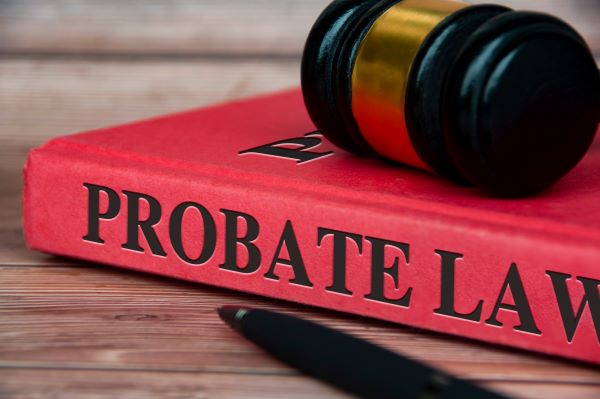Trusts are generally created when one person or firm manages assets for the benefit of…

A Guide to Probate Litigation
Lawsuits arising during the probate process, the legal process of administering the estate of the deceased, are known as probate litigations. When someone passes away, their assets and debts must be settled and distributed according to their valid will or the applicable state laws of intestacy (dying without a will). Disagreements and conflicts can lead to probate litigation.
Most matters the probate courts handle, like admitting wills and assigning executors, are standard operating procedures and go uncontested. However, legal contests arising from a person’s death or mental incapacity may lead to probate litigation over powers of attorney, will and trust contests, guardianships, conservatorships, and living wills.
Common Legal Concerns in Probate Court
Some common problems leading to probate litigations include:
- Will contests – The validity of a will can be challenged. Interested parties may dispute the will’s authenticity, allege undue influence or fraud, or argue that the person who made the will (testator) lacked the mental capacity to create a valid will.
- Estate administration disputes – Disagreements may arise among beneficiaries, executors, or administrators regarding the management and distribution of estate assets. These disagreements can include allegations of mismanagement or conflicts over the interpretation of the will or trust provisions.
- Claims against the estate – Creditors or individuals who believe they have a rightful claim to the deceased person’s assets may file claims against the estate. Claims can include outstanding debts, unresolved contracts, or disputed property ownership.
- Guardianship or conservatorship disputes – If there are disputes over the appointment of a guardian for a minor or an incapacitated adult or concerns about the actions of an appointed guardian or conservator, it can result in probate litigation.
- Breach of fiduciary duty – Executors, administrators, trustees, and other fiduciaries are legally obligated to act in the best interests of the estate and its beneficiaries. Allegations of misconduct, self-dealing, or failure to fulfill these obligations may lead to litigation.
- Document interpretation – Disputes may arise over the interpretation of a will, trust, or other estate planning documents. These conflicts can involve disagreements about the intended meaning of certain provisions, the scope of powers granted to trustees or executors, or the distribution of assets among beneficiaries.
- Family disputes – Family dynamics can often lead to probate litigation, especially with strained relationships, blended families, or unequal distributions of assets. Sibling rivalry, disputes with former spouses, or disinheritance can result in legal challenges.
Individuals marrying multiple times without a prenuptial agreement are also likely to incite probate litigation upon their death. Life insurance trusts can be a valuable way to separate the interests of the decedent’s spouses and children.
Probate, Estate, and Trust Litigation Attorneys
If you anticipate probate litigation, an experienced estate administration attorney can provide guidance and explain your rights and options to prevent future problems. If you are involved in a dispute, a probate litigation attorney can help you navigate the legal system and resolve it. There are also attorneys who specialize in conflicts with trust administration and litigation.
It’s essential to consider your legal situation and an attorney’s experience, reputation, and track record when handling similar matters. It’s also crucial to feel comfortable working with them.
Early Steps in Probate Litigation
In probate litigation, your attorney plays a key role in representing your interests while navigating the legal process. All things begin with an initial lawyer consultation to discuss your case’s details, goals, and concerns. Your attorney will evaluate the strength of your claims or defenses and explain the legal process, potential outcomes, and available strategies to achieve your objectives. Most states have strict statutes of limitations, so the earlier you contact a probate litigation lawyer, the better.
Your attorney will then thoroughly research your case’s relevant laws, precedents, and regulations. They will analyze the facts and circumstances to develop a legal strategy tailored to your situation. All relevant documents will be gathered and reviewed, including wills, financial records, trusts, and other evidence relating to the dispute. Your attorney will then prepare and draft legal documents like complaints, petitions, answers, motions, and discovery requests.
Probate Court Processes
Probate litigation hearings and trials are usually held in the county probate court where the decedent died. The probate litigation attorney you select should be familiar with the county probate court where the case is being tried.
Your attorney will engage in the discovery process by gathering evidence, documents, and depositions from other parties. They will also respond to discovery requests from the opposing party. Each side will advocate for their client’s interests, work to reach a favorable settlement if possible, and advise on the merits of accepting or rejecting settlement offers.
Trial preparation and representation will occur if the settlement phase fails. Your lawyer will prepare you for trial, make legal arguments, examine and cross-examine witnesses, and present your case to the court. Throughout the process, your attorney will help you make informed decisions regarding the direction of your case.
Probate court can illicit high emotions and tense interactions that greatly disrupt family relationships and leave the estate open to creditor lawsuits as well.
If you have any questions about something you have read or would like additional information, please contact our Albany office today at (518) 452-6979 and schedule a consultation.



